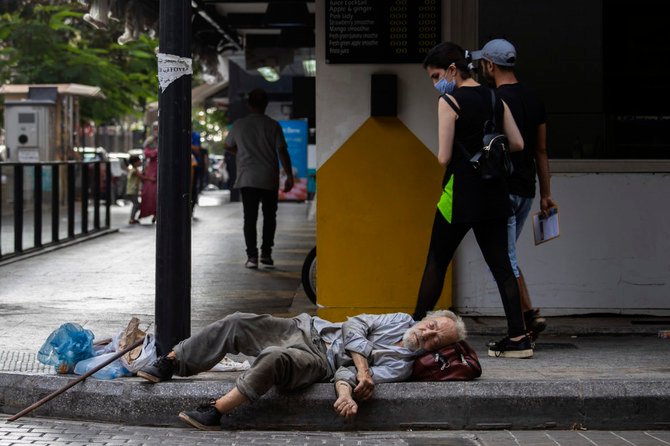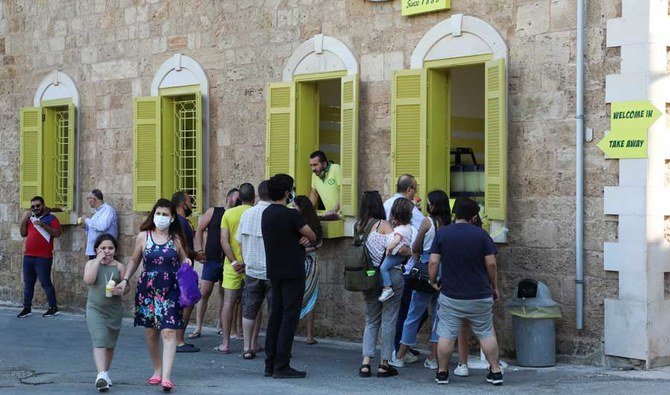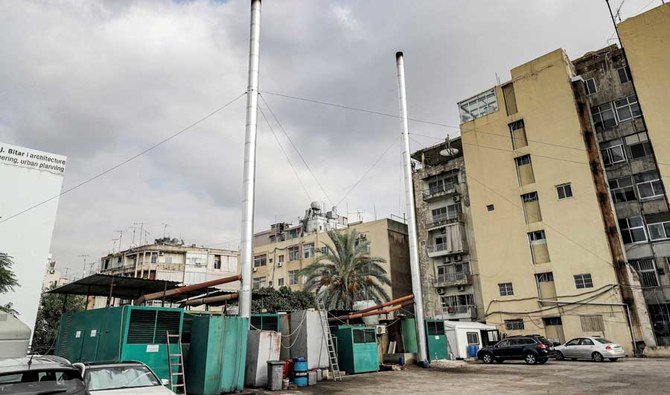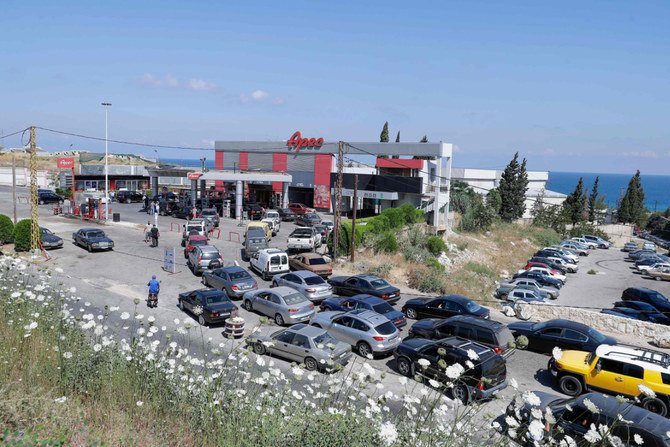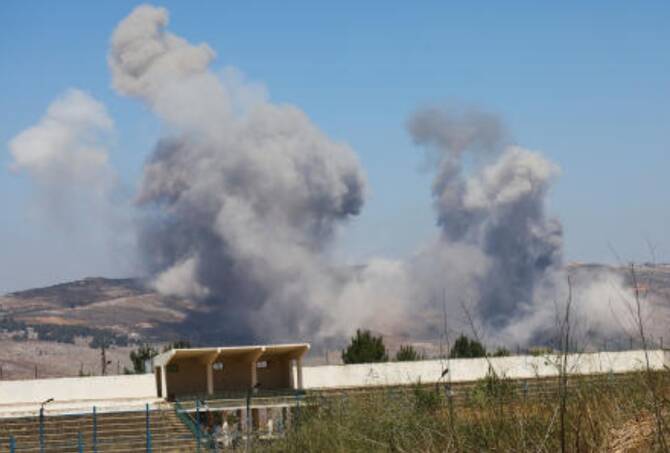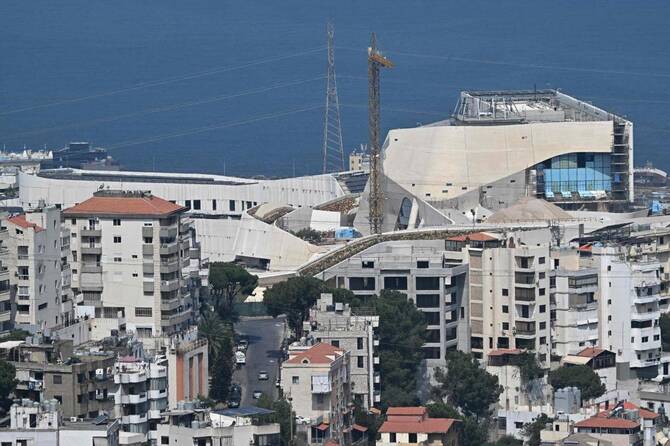Najia Houssari
BEIRUT: Violence has seeped into daily Lebanese life due to the country’s severe economic crisis and a breakdown in official security, with fights and even shootings at gas stations.
Lebanon is experiencing an economic crisis that is likely to rank as one of the world’s three worst in more than 150 years, according to the World Bank.
There are shortages of essential items such as fuel and medicine, while bread has become more expensive after the Syndicate of Bakery Owners raised prices now that government subsidies on sugar and yeast have ended.
People are queuing for hours at gas stations, and fistfights turn into shootings as people clash over who gets to fill their tank first.
People are taking their own lives or destroying their sources of income in desperation.
A 25-year-old man named Mathew hanged himself in his apartment in the Keserwan area, while a man in Baalbek tried to commit suicide in his shop because of the debts he had accumulated. Another person set fire to his bean cart in a Beirut street after receiving an order to remove it. The cart was his sole livelihood.
Living conditions have deteriorated considerably amid a political deadlock over the formation of a new government. There is a dispute between Prime Minister-designate Saad Hariri and President Michel Aoun about who should be in the new administration and what roles they should have, among other issues.
Hariri was named to form a new government last October but has yet to succeed. The government of Prime Minister Hassan Diab resigned days after a massive blast in Beirut on Aug. 4 that killed more than 200 people and injured thousands.
One activist turned his aim at the country’s authorities, tweeting: “You have turned Lebanon into a jungle and put people at the mercy of thugs at gas stations. You have humiliated people in every detail of their lives. We place the scenes of shootings at gas stations in God’s hands because we have no one in Lebanon to complain to. They are all responsible without exception.”
A resident from Beirut’s southern suburbs said that official security was no longer enough to deal with the chaos and violence that was finding its way into everyday life. “The official security forces, which have shared the task of providing security in the southern suburbs in recent years with Hezbollah and the Amal movement, have asked those in charge of these neighborhoods to participate in protecting the security of gas stations because the official security services are unable to cover all neighborhoods,” the resident told Arab News on condition of anonymity.
Self-security was not limited to Beirut’s southern suburbs, the resident added, but extended to Beirut and other neighborhoods, including Ain El-Remmaneh and Furn El Chebbak.
Fadi Abu Shakra, a representative of the union for fuel distributors and gas stations in Lebanon, spoke about the dangers of the new development.
“Some individuals who imposed themselves as in charge of security at gas stations are using extortion,” he told Arab News.
“The riots and attacks in front of the stations are no longer bearable. The owners of over 140 gas stations refused to receive gasoline from the companies because they were exposed to extortion and beatings, and could not protect themselves.”
He called on the security services to protect the gas stations which, he said, were “only trying to do their jobs.”
But Brig. Gen. Anwar Yahya, a former judicial police chief, said that the Internal Security Forces were not responsible for “ensuring public order” in front of gas stations. “This falls within the responsibilities of municipalities, and there is a law that stipulates this,” he told Arab News. “But the municipalities are also suffering under low budgets. Some parties are involved in certain municipalities and they can assist them in such matters. However, when such individuals have a greater influence than the official security forces, the state’s stature diminishes.”
The economic crisis had affected the Lebanese armed forces, he added, and the international community’s cooperation to support them was “an expression of its fear” about the military “crumbling” under the pressure of events in Lebanon.
Security services have been submitting daily reports on their pursuit of people smuggling subsidized materials to Syria and on those being arrested for harming social and food security.
Yahya, who spent 39 years in the security field, said people expected the state agencies to provide protection and that the army remained the “ultimate salvation.”
“The most important thing is to speed up the formation of a government because people are hungry,” he added.
He stressed that, until the time came when there was a new government, an individual’s primary role was maintaining self-protection. “Among the preventive measures that citizens can take are locking doors and windows, applying the principles of neighborhood security, and informing the police of every emergency.”



